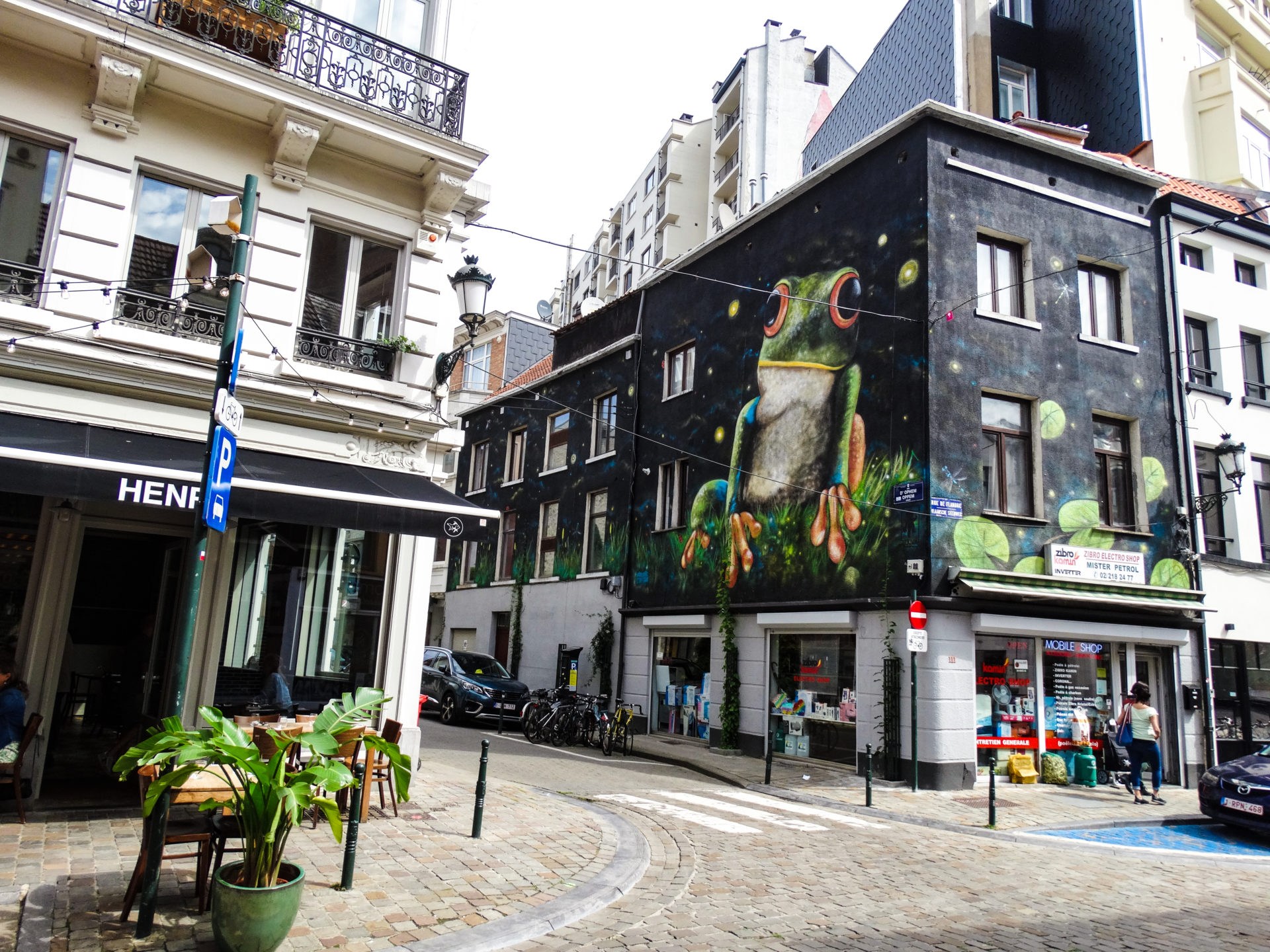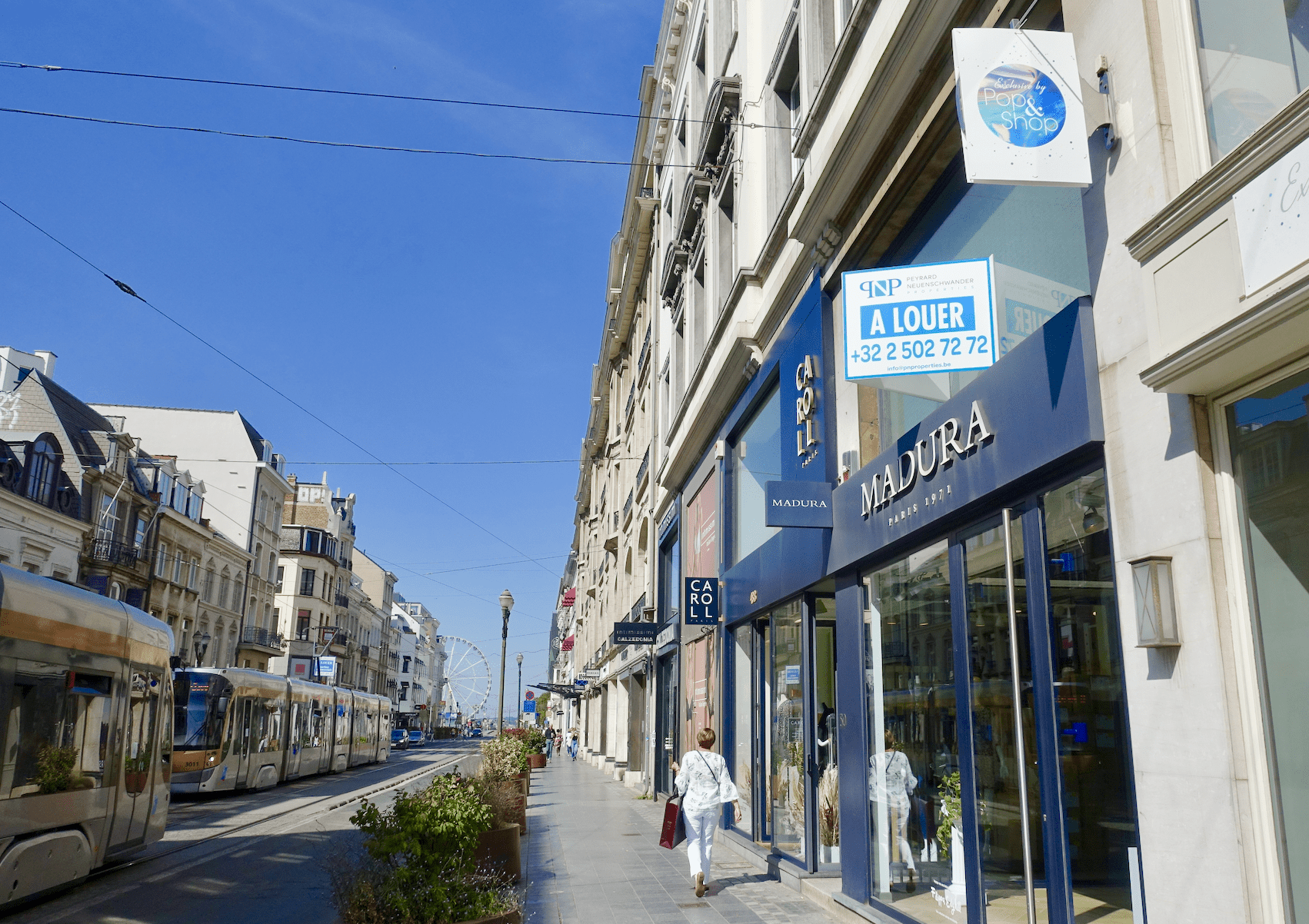While Airbnb claims that it enables people to rent their room or house sporadically to tourists, affording travellers a more authentic experience in non-touristy neighbourhoods, a new study from the Vrije Universiteit Brussel (VUB) shows this isn’t really the case.
In fact, almost half of the dwellings on Airbnb in the Brussels-Capital Region are offered by investors and professionals, and they’re highly concentrated in touristic hotspots and the European quarter.
“Not all people who offer dwellings on Airbnb are the same,” Prof. Dr. Pieter-Paul Verhaeghe, a sociologist at VUB, told The Brussels Times.
Verhaeghe looked at 11,427 dwellings in the Brussels Capital Region on Airbnb for the year 2019.
“We see that around 55 percent of these dwellings fall under the original Airbnb philosophy - people who share rooms in their house for maybe a couple of days, for people who are going on holiday or perhaps an expat living temporarily abroad,” Verhaeghe said.
“Then we see that 45 percent of the dwellings offered on Airbnb are actually offered by what we call professional players or investors.”
Professional players, as Verhaeghe explained, are people or companies that offer three or more listings on Airbnb each year, often at the same time.
“So this cannot be people who just share their homes,” Verhaeghe pointed out. “It’s probably an investor who has multiple houses and properties in Brussels, and maybe one of them is where they live. That’s problematic.”
A housing crisis
Brussels has been facing a housing crisis: rents and home prices are increasing, and inventory is scarce.
Homelessness is likewise rising, and while some apartments remain out of reach for all but the highest wage earners, other buildings sit empty while people live on the streets.
“I estimate there are more than 5,000 Airbnb dwellings in the very tight, very expensive housing market of Brussels, and that’s more than 5,000 dwellings that are not going to local inhabitants,” Verhaeghe said.
The researchers found that the dwellings were highly concentrated in the tourist neighbourhood around the Grand Place and La Monnaie, and around Atomium and the European institutions near Parc Léopold and Schuman.
“The distance from the city centre and the number of restaurants in the environment appear to be strong predictors for the Airbnb density in a neighbourhood: the further away from the Grand Place and the fewer restaurants there are, the fewer dwellings are available on Airbnb,” said economist Marek Endrich.
This is contrary to Airbnb’s philosophy regarding exposing travellers to the less-touristic parts of a city and experiences off the beaten track.
“Hosts offer one-of-a-kind stays and unique experiences that make it possible for guests to experience the world in a more authentic, connected way,” Airbnb says on its official website.
“Thirty-two hosts even offer 10 or more apartments at the same time on Airbnb,” said Verhaeghe. “These listings are especially highly concentrated in de Îlot Sacré and near the European institutions.”
The other 29 percent of this professionally-run market consists of people who offer two listings on Airbnb, or even just one listing, but for a period of longer than 120 days per year.
“We suspect that these are people who own a second or third dwelling as an ‘investment’ and offer these dwellings on the lucrative Airbnb market. It’s clear that they don’t live in these dwellings,” said Endrich.
Against company philosophy
This means that only about half of the Airbnb hosts in the Brussels-Capital Region are adhering to the original philosophy of the platform.
“It has detrimental effects on the supply of decent housing in Brussels, and probably also in the rental prices,” said Verhaeghe.
“In the neighbourhoods with Airbnb dwellings, rental prices are increasing more than the general rent increases.”
Airbnb claims that it enables people to let their room or house sporadically to tourists. A new study of @ID_VUB shows that 45% of dwellings on Airbnb in Brussels is offered by ‘investors’ & ‘professionals’. More than 5000 dwellings are not offered on the local housing market. 1) pic.twitter.com/rlinvSP7xR
— Pieter-Paul Verhaeghe (@PieterPaulVer) September 6, 2021
Studies conducted in Barcelona and Amsterdam support this phenomenon, sometimes called “the Airbnb Effect.”
But Verhaeghe says that Airbnb itself has little interest in taking responsibility for the damage it does to local housing markets.
“It’s a company based in California, and they’re just saying, ‘we’re giving people the opportunity to share their homes. That’s their responsibility, not ours,’” he said. “And as a consequence, they don’t share data about their hosts. That makes it really difficult for politicians to do something about the problem.”
“If you don’t know who the hosts are, and where precisely they are located, it’s really hard to monitor and control that. Airbnb, just like Uber, doesn’t share the data or information about their users.”

Brussels streets. Credit: Jilke Tielemans/The Brussels Times
The lack of interest in addressing the so-called Airbnb Effect runs contrary to a lot of the company’s branding, which, just like their stated philosophy, portrays them as eager to be a part of the local community.
“They do plenty of marketing about how they want to help with things like sheltering refugees, but that’s just marketing,” said Verhaeghe.
“If you look at many cities, and not just in Belgium, you see that the basic problem is that they do not collaborate with local governments about the impact of Airbnb on housing markets.”
Unregistered properties
One way people in Brussels have tried to get a better picture of the issue is by examining the housing in the most popular neighbourhoods on Airbnb (addresses are not listed publicly on the platform prior to booking, but the general area is shown).
If there is a building with three doorbells, Verhaeghe explained, but only two names are registered with the city, it can likely be assumed that the third, unregistered address is a rental unit.
In Amsterdam, city officials looked to ban the Airbnb platform altogether. Airbnb denied that they were part of the issue, placing the blame on hotels, instead.
“What we’d really like them to do is respect local and regional regulation,” Ans Persoons, Alderman for Urban Development and Public Spaces, told The Brussels Times.
“Every country and city has different policies with the similar aim of protecting housing, but Airbnb feels and states that they don't have to follow those local rules,” Persoons said.
She said that there are places in Brussels where Airbnbs outnumber residents. “We’ve seen that there are entire apartment blocks where the whole building has been bought up by investors and they force the residents out and use it for tourist accommodations.”
In Brussels, housing is very protected, she says. People need a permit if they intend to be a host on Airbnb, and they come with strict rules and regulations (such as a cap on how many days each year a home can be rented out and an obligation for the owner to be registered at the same location) and are not easily granted.
This means that many of the Airbnbs operating in Brussels are likely doing so illegally.
“We’ve already seen it in other cities: it can completely change the nature or identity of a neighbourhood,” said Persoons.
“If you have no long-term residents, all the shops change, and it becomes impossible for the people who want to live there to continue to live there. Properties are often rented for parties, and there isn't really a neighbourhood vibe where people know each other and help each other out.”
Persoons said Brussels tries to find (and fine) the owners of properties in these technically-abandoned neighbourhoods, where according to city data, no one lives: “Nobody came to the commune to register. It's abandoned. It's not run down, but nobody lives there.”
She emphasised that they’re not after the legal Airbnb owners (the one with permits), but the companies, or the investors and professionals from Verhaeghe’s study.
An international problem
“Brussels is part of a network of other cities that are confronted with the same problem and we try to exchange ideas. Everyone is having their own little battle with Airbnb.”
Something Brussels is trying to do is craft new legislation at the European level when it comes to platform businesses like Airbnb, Uber or Deliveroo, explaining that the existing regulations are 20 years old and reflect what were at the time small start-ups and emerging companies that have since turned into multi-million dollar corporations, some of which are now publicly traded on stock markets.
“Although Airbnb stressed that it’s just about letting a couch or a room in your home to someone, it’s become a real business model and that needs adapted regulations,” Persoons said.
“Of course we're not against tourists. We're happy they come to Brussels. It's all about finding that balance of affordable, lively neighborhoods for residents, and the tourists we need for our economy.”
But the locals have to come first, if Brussels is to avoid the fates of Paris or Amsterdam or Lisbon.
“We want to protect affordable housing for our residents,” said Persoons. “That’s important and we have the right to do it, and so that's what we’ll continue to do.”
As for Verhaeghe, he emphasised that he was not opposed to Airbnb as a whole, or against people using the platform, stating that the important thing is for the US-based company to share its data with stakeholders in the cities in which it operates, for politicians to keep pressuring them to do so, and for users to be more conscientious about their bookings.
“For people like us, if you use Airbnb, try to make sure you’re booking your stay through a local host, and not a company,” said Verhaeghe.
“Stay among the local inhabitants and keep to the original Airbnb philosophy.”
The recent VUB study focused on the year 2019, hoping to examine pre-coronavirus data.
They are also planning a separate study focused on the period during the pandemic.
The study from VUB was funded by Innoviris, an institution in the Brussels-Capital Region that encourages and funds scientific research and innovation.
In response to its findings, Airbnb offered the following statement: “This study is based on unreliable and outdated scraped data and makes misleading assumptions about our community. Less than 5 percent of Hosts in Brussels have three or more listings and nearly a third of Belgian Hosts say the money they earn helps them to make ends meet.”
They also added that “the EU Commission has asked Belgian authorities to update Brussels’ excessively burdensome rules that favor professional hosts over everyday homesharers and we look forward to working with the Brussels Government on clear and simple rules that put home sharing at the heart of the tourism recovery.”
Note: This article has been updated to include a statement from Airbnb. Airbnb did not respond to initial requests for comment prior to publication.



